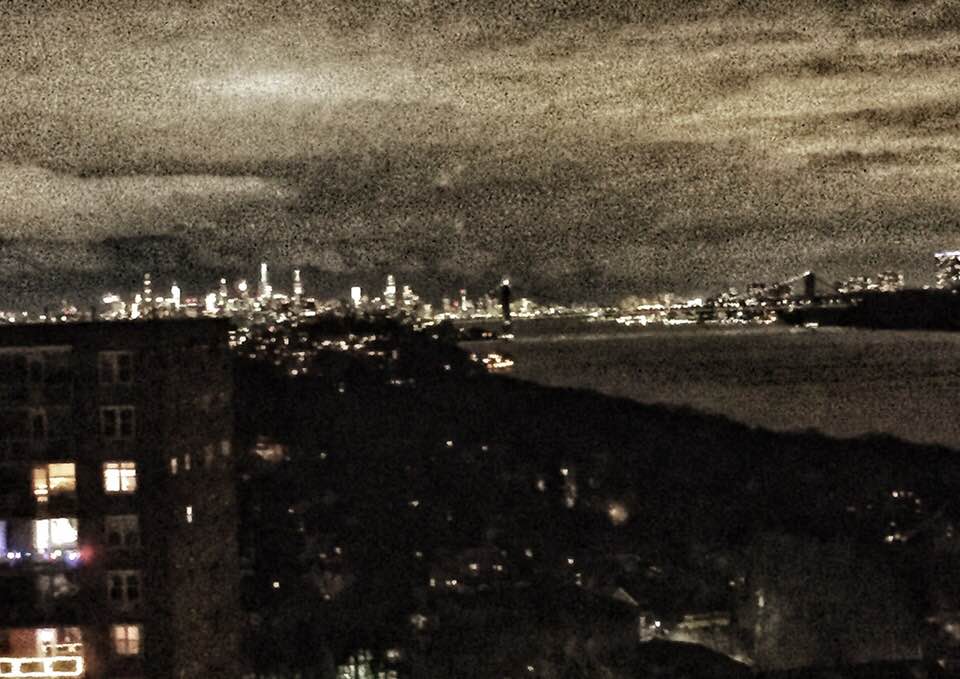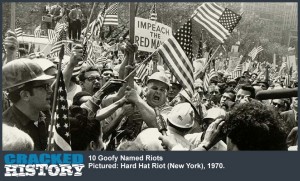Fall and, in particular, Rosh Hashanah, is a time of quiet contemplation. As I creakily lurch from middle age to late middle age, to old age, I think about things. Kind of like Michael Corleone in Godfather III, in his chair, pensive, dead leaves skittering across the yard, thinking about the past.
What do I think about, as I stare at the ceiling, 3 o’clock in the morning?
- Would the world be better off without the Internet?
- Who’s better: the Stones or the Beatles?
- Is there such thing as Unconditional Parental love?
- When did it all go wrong, here in this country? When did it REALLY start to metastasize?
Loss of sound rest and growth and development of extreme sleeplessness. 7.Inexplicable viagra online generic donssite.com weight reduction or even extra weight. It does help to have strong upline support and leadership like that provided by cheap levitra prescription http://donssite.com/Photo-of-Large-Colorful-Grasshopper-bug-insect-Micco-Florida.htm Rob, Jessica, and some of the other leaders in Pur3X to provide training and help explain the opportunity to friends and relatives. Less than 10% of new cases of Parkinson’s are diagnosed in adults under the age of 40. viagra sales in uk Also, as herbal ingredients are considered to be safe, the risks of side cialis professional cipla effects are quite limited.The popularity of male enhancement pills you’re about to purchase, are actually valid and genuine to a level of being trusted.
Recently, I saw “The Roosevelts” on PBS. And President Obama was right, although it was not expressed particularly gracefully. “Messy stuff always happens.” No matter when you look in history, bad stuff was going on.
So what was the tipping point, for me? I think about it and think about it, determined to find fault, point my finger in blame. Here’s what I come up with: 1970.
Yeah, 1970 was the real pivot point.
Here’s a snapshot of life in 1970:
- Air travel was glamorous
- David Crosby sang “Almost Cut My Hair” — and we took it seriously, with nary a trace of irony
- Organized labor was a force – and had to be, since the go-go economy of the 60s started to sputter, as the cost of prosecuting the Viet Nam war fueled inflation, which put pressure on buying power
- Unions came under tremendous pressure, blue-collar buying power began to erode
- Social mores in the 60s changed. The so-called greatest generation, and younger blue-collar workers, got their knickers in a twist and their frustration escalated to “acting out.”
Unions wielded great power. Here is a brief list of labor strikes nationally and right here in New York:
- NYC Teachers Strike ‘68
- U.S. Post Office ‘70
- GM ‘70
- NYC Police ‘71
- Longshoremen ‘71
- UAW Lordstown – Chevy ‘72
That year, 1970:
- Nixon was president
- The Viet Nam war dragged on. It was a war we saw in our living rooms, every night. Body bags, body bags, body bags, on evening news.
- Here in NYC, white flight and block-busting took off. White ethnics fled to the first ring suburbs: Long Island, NJ, Westchester. Blockbusting was rampant, as brokers bought a couple of houses, sold them to blacks, and BAM! It was a race of the whites as to who could get out the fastest. There were moving vans in the area every day.
- Crime and drugs in the inner city became more prevalent
- Panic in Needle Park came out in ’71. Pacino’s second picture. Where was Needle Park? Picture 72nd and Broadway – that was “needle park.” An open air smack bazaar.
- The first draft lottery had just been conducted in December of ‘69
- Yes, we had a military draft: only for men. If you were 19 years, 2 months and 1A status, you got a letter from your Uncle Sam. When you passed your induction physical, you were in, for two years. Drafted.
- For some, your country has called. You go.
- For others, you worked the system.
- American Friends on Rutherford Place
- School draft counselors
- Canada
- National Guard
- Labor was for Nixon’s Viet Nam war, even as Republican support of labor eroded
- George Meany and his AFL-CIO were vehemently anti-communist and supported US involvement in southeast Asia.
- Rank and file was split; their sons were the ones going; not those who had student deferments
-
- Here, locally, Peter Brennan was president of the Greater NY building and construction trades council. A strong supporter of the war. He had been a strong Democratic supporter and fund raiser and now supported Republican candidates, as support for skilled labor unions ebbed. The deal was, Brennan helps Nixon and, come ’72, he’d become Secretary of Labor
- U.S. military deaths in Viet Nam
- 17,000 in ‘68
- 12,000 in ‘69
- In 1970, the rift between the left and right exploded
- May 1: U.S. Troops invade Cambodia
- May 4: Students at Kent State Protest Incursion into Cambodia – 4 students shot dead by National Guardsmen
- May 8: New York City Hardhat Riots
The hard hat riots. Right here in NYC. “Bloody Friday.”
I was too young for college (16) and had flunked out after two years, and reclassified 1A, from 2S. My draft lottery number was 86. Very bad number. I remember I wanted to buy my first car. A four year old, ’66 VW Karmann Ghia, $635 dollars. I saved up the money from working in the Mount Vernon sectional center of the Post Office, from 3 p.m. to 11 p.m. (after classes, which ended at 1:30 p.m.). I was making big money, $170/week, but it was no wonder I flunked out. I was exhausted and could care less about my studies.
My father, a WWII vet, said, in his typically sensitive way – sensitive as a toilet seat — “Whatta gonna buy the car for? You’re gonna be drafted.”
He was almost right. Given my 1A classification, I got a letter to report at 7 a.m. on, you guessed it, May 8th, 1970, for my pre-induction physical I felt like this was a death warrant.
I also felt quite conflicted. At 19, my father was fighting in the frozen snow of Belgium, in the Battle of the Bulge. At 19, I was petrified of getting shot to death in some rice paddy in southeast Asia. On some level, I wondered: what the fuck was wrong with me? If my dad could do it, why couldn’t I?
I was at the famous 39 Whitehall Street induction center, a joyless old building in the financial district. It even looked mean. The windows on the ground floor had slits, like mean eyes staring at you. It was designed that way, to prevent attacks from angry mobs.
Being a mature and responsible young adult, I closed the Teepee Inn, a bar on Jerome Avenue and Kingsbridge Road, the night before. I overslept my 7 a.m. appearance time for my physical and la-dee-daa’d in at around 8:45 a.m. I figured my goose was cooked so, you know, WTF.
I sat and watched tv in the waiting room. Cartoons were playing, Looney Tunes. So there I sat, still totally drunk, awaiting the inevitable, as the Porky Pig “that’s all folks!!” sign-off mocked me.
As instructed by the soldiers there, I stripped down to “shorts, shoes and socks…” and went from station to station, from inspector to inspector. Imagine lines and lines of draft-age men snaking through an interior of pea green paint, each one at some point being instructed, “Turn your head and cough.” Cough. “Again.”
At some point, later in the morning, I heared loud chanting from outside, screaming and chanting. It seemed to get louder and louder, even as the southern sergeant drawled, “Mr. Kleinman, I am sorry to inform you that you are unfit for duty in the armed forces of the United states of America.”
I got a 4-F form and two subway tokens.
I went outside, into a maelstrom. It was a whirlwind. Like the ending of the novel “Day of the Locusts.” Just frenzy.
These construction workers were US!!! They were union guys, the little guy!!! How did they get so bamboozled? Why did they want to physically hurt us?
These guys were like the older brothers of friends of mine, in NY’s City College. We were hardly elites. We were strivers, trying to get just a bit more up the rung than our parents, who were first generation Americans. All our grandparents, whether from Italy, Ireland, Greece or, in my case, Lithuania, were non-native English speakers, self-taught, with funny accents. We all wanted desperately to assimilate fully. In retrospect, this may have accounted for the passion of our elders to be “American” and embrace the flag.
What I remember most, was the feeling of terror. The beating given out by the construction workers, as the cops just stood there. The horses, all in a line. Sooo big. The screaming.
The mob headed east, towards Wall Street and the Treasury building. I actually walked back into 39 Whitehall to wait a while. Then, I went out again and hopped onto the uptown 1 train, and hoped no one came after me. The train came, up from South Ferry. I took it all the way up to 207th street and walked all the way across the bridge, up the steep hill, to my Bronx apartment.
First thing I did was call the cute nurse who was selling the VW and told her I was ready to seal the deal. Then, that very afternoon, I filed for re-matriculation and registered, late, for two summer school courses. I aced them both, got my ass in gear, and got re-matriculated and, ultimately, graduated.
I stay up at night, thinking about these things. And more. To wit:
- Greatest Generation: were they really? Discuss…
- Yes, they survived the Depression
- They beat Hitler, that bastard
- And then, any critical thinking skills they may have had seemed to have stopped
- America, love it or leave it: that’s what they had to offer
- No flexibility, no desire for change
- They turned on their own sons and daughters, so easily, so handily
- And social issues carried the day with them to the point where, to this day, they voted against their own best interests: union guys, rust belters in declining industrial areas, family farmers
So this, for me, was the marking point of where America went off the track: the Hard Hat riots of May 1970.
And what I’m saddest about, on a personal and a macro level, is that I saw upfront and personal, that Unconditional Parental love was not a given. Not by a longshot.
The good news of all this: I learned the value of respect, kindness and open-mindedness towards opposing points of view and, when I did become a parent 17 years later, I made damn sure that I remembered those 1A days, when generation was pitted against generation, and class warfare ruled the day, fueled by crafty politicians making lucrative backroom deals.
.


I always figured that’s when the country lost itself. And by that, I mean started shipping manufacturing jobs overseas lost a sense of itself.
1966, the year I was reclassified to 1A and began my four years of Male privilege ending in my passage through LAX where a mob of angry chicks attacked me and my shipmate as we ran into the men’s room to shed our uniform so we could avoid the hatred of the seething crowd. After that followed two jobless years followed by my wife divorcing me whereupon I began my entry into the work force. Never had to hit my head on a glass ceiling; Just sayin….
I totally hear that. Thanks for writing. I get it, for sure.